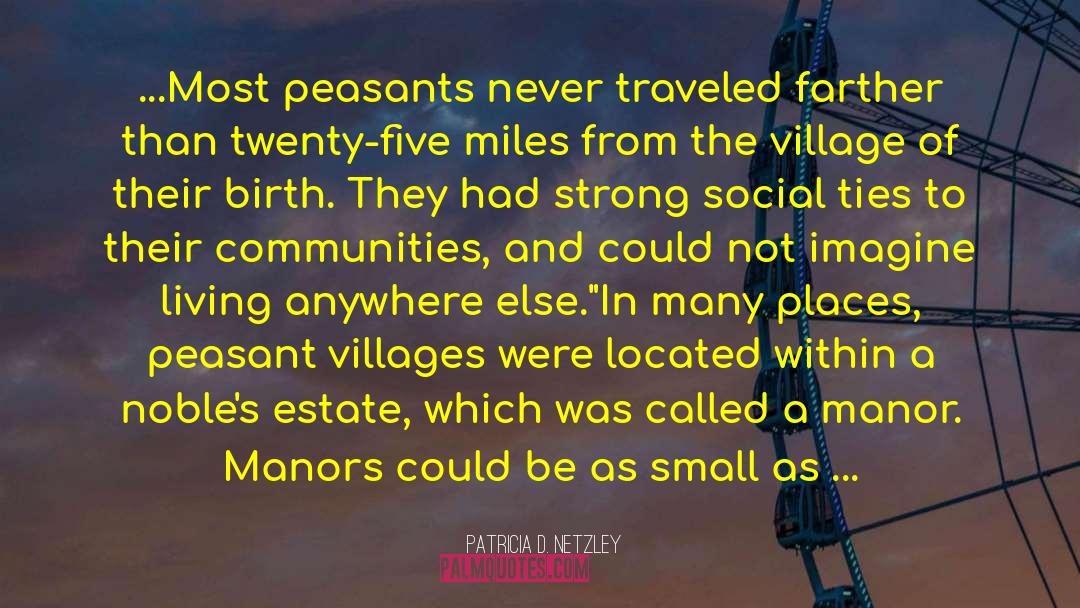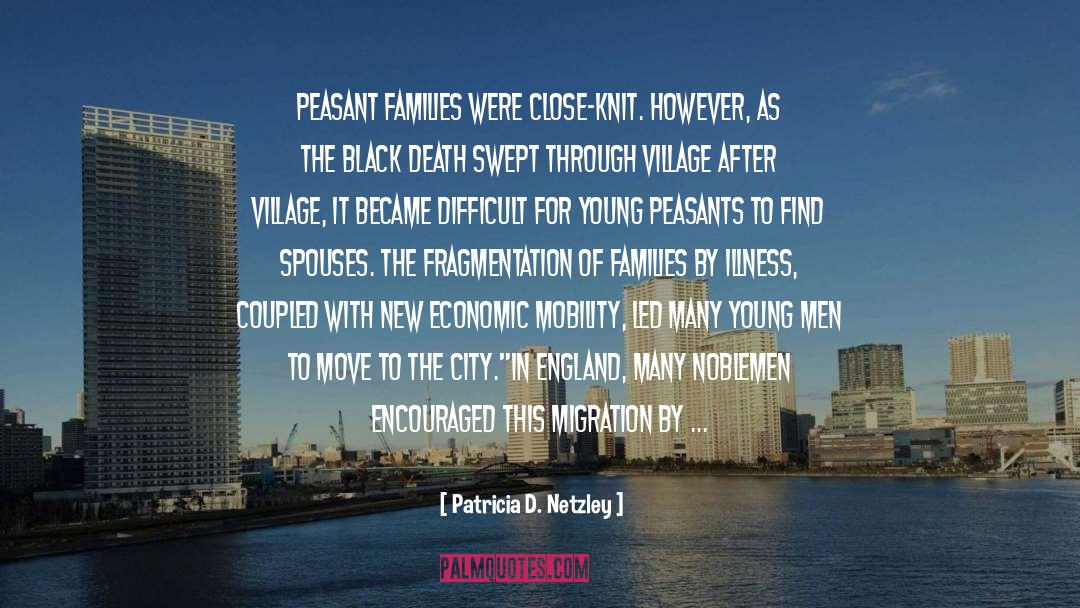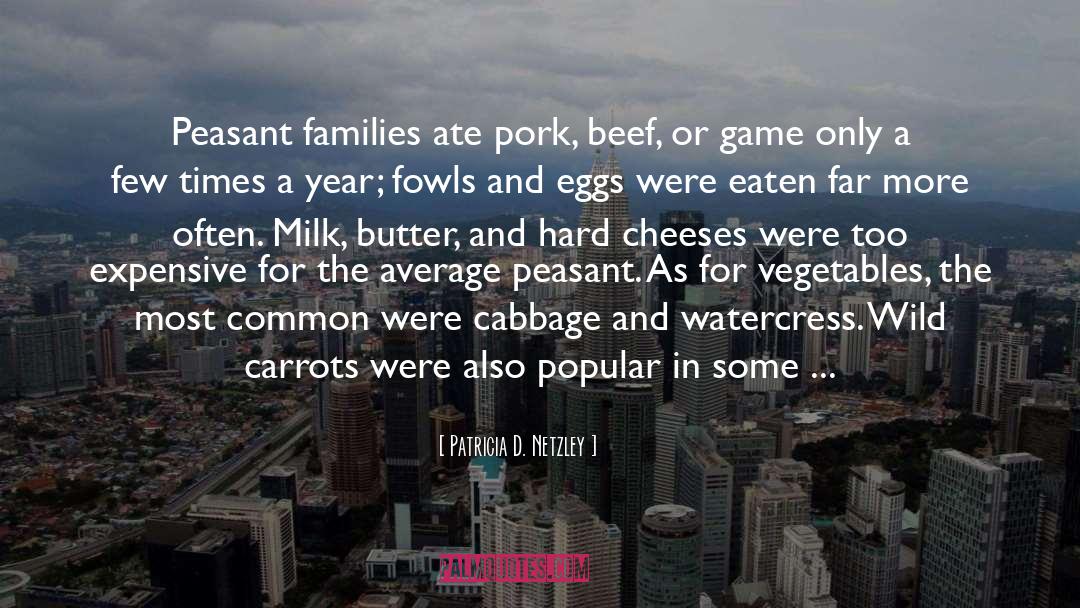Patricia D. Netzley Famous Quotes
Reading Patricia D. Netzley quotes, download and share images of famous quotes by Patricia D. Netzley. Righ click to see or save pictures of Patricia D. Netzley quotes that you can use as your wallpaper for free.
...Most peasants never traveled farther than twenty-five miles from the village of their birth. They had strong social ties to their communities, and could not imagine living anywhere else.
"In many places, peasant villages were located within a noble's estate, which was called a manor. Manors could be as small as one hundred acres or as large as several thousand acres and typically encompassed a mixture of cultivated and uncultivated land. Forests provided wood, nuts, and berries; pastures and meadows offered grazing for livestock; and lakes and rivers gave water and fish. But the largest acreage was devoted to agriculture, apportioned among the peasants and the noble, although the noble did no farming himself. Instead the peasants collectively worked both his land and theirs.

...The [Renaissance] interest in education was also influenced by a changing economy. For different reasons in different countries, agriculture was becoming less lucrative, and many farmers decided to move to the cities to take up new occupations. However, to succeed in a trade they needed to know how to read and perform bookkeeping tasks ... Those who remained on the farm found life much the same as in the Middle Ages. In fact, in some agricultural regions the Renaissance economy devastated farmers. For example, as the wool industry grew in importance, more landowners in England decided to raise sheep instead of growing crops. They therefore needed fewer farmworkers, and many peasants lost their livelihoods.
![Patricia D. Netzley Quotes: ...The [Renaissance] interest in education Patricia D. Netzley Quotes: ...The [Renaissance] interest in education](https://palmquotes.com/author/patricia-d-netzley-quotes-304933.jpg)
Peasant families were close-knit. However, as the Black Death swept through village after village, it became difficult for young peasants to find spouses. The fragmentation of families by illness, coupled with new economic mobility, led many young men to move to the city.
"In England, many noblemen encouraged this migration by converting their land to raising livestock rather than farming, evicting their tenants and closing down entire villages ...
"...Sometimes a village was abandoned because the surrounding soils were depleted and ceased to yield good crops. In other locations, the decline in populations caused by the Black Death lowered food prices and made farming unprofitable.
"But whatever the reason, once a village was abandoned, most of its peasants headed for the city to try to make their living. And as migration increased and the cities grew in size and importance, many noblemen decided to move their too ... however, in the city, nobles discovered that their relationship with the lower classes had changed. Men had opportunities for advancement regardless of social class; the manorial system did not exist in urban centers of growth and progress.

Peasant families ate pork, beef, or game only a few times a year; fowls and eggs were eaten far more often. Milk, butter, and hard cheeses were too expensive for the average peasant. As for vegetables, the most common were cabbage and watercress. Wild carrots were also popular in some places. Parsnips became widespread by the sixteenth century, and German writings from the mid-1500s indicate that beet roots were a preferred food there. Rutabagas were developed during the Middle Ages by crossing turnips with cabbage, and monastic gardens were known for their asparagus and artichokes. However, as a New World vegetable, the potato was not introduced into Europe until the late 1500s or early 1600s, and for a long time it was thought to be merely a decorative plant.
"Most people ate only two meals a day. In most places, water was not the normal beverage. In Italy and France people drank wine, in Germany and England ale or beer.

